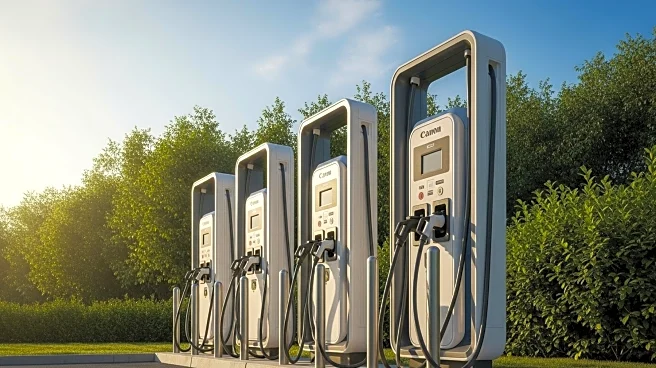What is the story about?
What's Happening?
Uruguay has emerged as a leader in electric vehicle (EV) adoption in Latin America, achieving a 24% market share for battery electric vehicles (BEVs) in August. This marks a significant increase from previous months, with nearly one in four vehicles sold being purely electric. The growth is attributed to the availability of affordable Chinese-made EVs and competitive pricing strategies. Brands like BYD, Chevrolet, and Dongfeng have contributed to this trend, with models such as the Chevrolet Spark EUV gaining popularity. Despite a relatively small charging network, Uruguay's high gasoline prices have incentivized consumers to switch to EVs.
Why It's Important?
Uruguay's success in EV adoption highlights the potential for electric mobility in developing countries, where affordability is a key factor. The shift towards EVs in Uruguay could serve as a model for other nations with similar economic conditions, demonstrating that significant adoption can occur even with limited infrastructure. This trend may influence global automakers to focus on affordable EV options to capture market share in emerging markets. Additionally, Uruguay's transition to cleaner transportation aligns with global efforts to reduce carbon emissions and promote sustainable energy solutions.
Beyond the Headlines
The rise of EVs in Uruguay underscores the importance of pricing in driving consumer adoption. As legacy automakers face competition from Chinese brands, they may need to adjust their strategies to offer affordable EVs. The EU-Mercosur trade agreement could further impact market dynamics, potentially allowing European brands to regain market share. Uruguay's experience suggests that economic incentives, such as high fuel prices, can accelerate the transition to electric mobility, even in regions with limited charging infrastructure.














